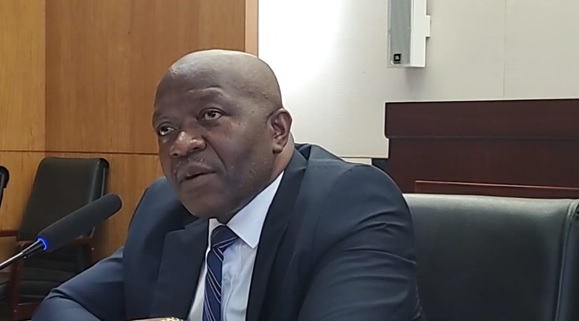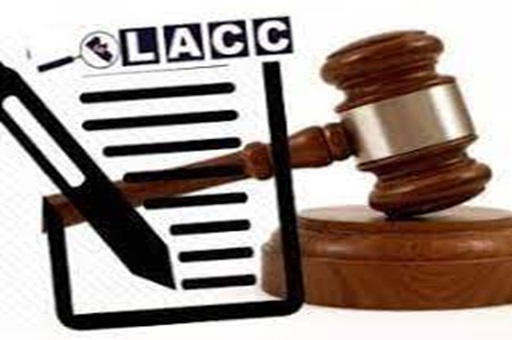MONROVIA, LIBERIA – At his Senate confirmation hearing on Thursday, September 6, 2024, Finance Minister-designate Augustine Kpehe Ngafuan laid out an ambitious and comprehensive vision for the future of Liberia’s financial management. Addressing the Senate’s Ways, Means, Finance, and Budget Committee, Ngafuan began his statement by expressing deep gratitude to President Joseph Nyuma Boakai for nominating him and thanking the Senate for the opportunity to present his plans for leading the Ministry of Finance and Development Planning.
Ngafuan likened his nomination to a “Commanding-In-Chief summoning a reservist back to the battlefront,” emphasizing his dedication to tackling the significant challenges Liberia faces. Acknowledging the complexity of these issues, he made it clear that there would be no immediate “magic wand” solution but promised that his tenure would focus on effective, time-intensive efforts that prioritize Liberia’s long-term development goals.
One of the central themes of his statement was the need for effective resource allocation. Ngafuan stressed the importance of ensuring that resources generated from domestic sources, grants, and loans are funneled toward the nation’s highest priorities. He referenced the development of the new ARREST Agenda for Inclusive Development (AAID), which he aims to formally launch by November 2024. This agenda, Ngafuan explained, will serve as the foundation for Liberia’s FY 2025 budget, ensuring that key priorities are reflected in the nation’s financial planning.
A second focus was increasing resource generation. Ngafuan outlined several strategies, including addressing economic bottlenecks such as the energy and transportation sectors, which he described as “binding constraints to growth.” He also pointed to the agriculture sector, which contributes over $1.3 billion to the economy, and the need for stronger support for the National Agricultural Development Plan (NADP) to boost national food security and job creation. Additionally, he addressed shortcomings in revenue collection from the mining sector and pledged to work closely with the Liberia Revenue Authority (LRA) to improve efficiency and prevent revenue shortfalls.
Another significant point in Ngafuan’s vision is the credibility and efficiency of the budget process. He stressed the need for realistic revenue forecasting, particularly in complex sectors like mining, and committed to streamlining budget execution processes. Reducing bureaucratic delays in allotments and payments, Ngafuan argued, would help create predictability and stability for businesses contracting with the government. He vowed to maintain and even improve the recent gains in salary payment timeliness for government employees, aiming to ensure that all workers are paid by the end of each month.
Ngafuan also highlighted the importance of compliance with financial management laws, citing concerns raised by the General Auditing Commission (GAC) regarding low adherence to regulations. He emphasized his intention to work closely with the GAC and other integrity institutions to improve accountability and transparency across government.
In addition, Ngafuan touched on the review of the Pay Harmonization Program, which he acknowledged had raised concerns. He promised to work with the Civil Service Agency (CSA) to address those concerns and strike a balance between maintaining a sustainable wage bill and ensuring that government employees are adequately compensated.
One of the more pressing issues Ngafuan addressed was the need for prudent debt management. With Liberia’s debt stock nearing dangerous levels, Ngafuan stressed the importance of responsible borrowing and ensuring that any new debt is contracted on favorable terms and invested in projects with high economic returns. He recalled the debt relief efforts under former President Ellen Johnson Sirleaf and underscored the need to maintain fiscal discipline to prevent Liberia from falling back into unsustainable debt levels.
Ngafuan also expressed strong support for Liberia’s climate action agenda, pledging to work with the Environmental Protection Agency (EPA) and other government agencies to leverage available climate finance opportunities. He emphasized the need to balance conservation efforts with responsible commercialization of Liberia’s vast natural resources.
In closing, Ngafuan acknowledged that his outlined priorities are not exhaustive but represent key areas of focus if confirmed as Finance Minister. He promised to continue seeking input from both Liberians and international partners and emphasized his willingness to collaborate closely with the National Legislature. Describing his role as similar to that of a choir director, Ngafuan said his goal is to lead the Ministry of Finance and Development Planning in a way that supports the functioning of the entire government, likening the Ministry to the heart that pumps blood to all parts of the body.
With humility and determination, Ngafuan concluded by pledging to make the Ministry of Finance work efficiently and to always put Liberia first.
“Thanks a million for affording me this opportunity,” Ngafuan said, addressing the Senate committee as he awaited their confirmation decision.







